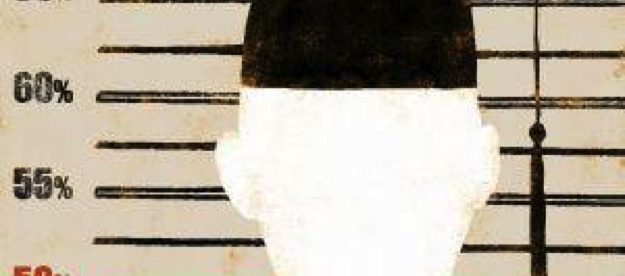Sexual Assault on Campus: Overdue Due Process
By AMANDA DUCKWORTH
When Rolling Stone published the story of one woman’s account of a brutal gang rape in a University of Virginia fraternity house, readers were quick to express outrage and demand justice. The article attracted national attention along with an outpouring of support for “Jackie,” the unidentified victim. However, the support for “Jackie” was met, if not surpassed, by the contempt incited against the school and fraternity. During the night after the article was published, the fraternity house in question was vandalized and, the next day, students began to protest. As it turned out, the story was proven to be inaccurate and Rolling Stone retracted the key parts of the story, apologizing to its readers. But why did it take two weeks for the article’s numerous and egregious discrepancies to be brought to light? Perhaps it was just because the events described in the story, as despicable as they were, sounded unfortunately too feasible. Or maybe the public’s unquestioning deference to the story was based on the authority of its source and an expectation of accuracy in journalism. While these reasons likely played some role, the lifespan of this fact-deprived story is largely due to our increasingly victim-centered culture, which discourages healthy doubt. Shortly after the article was published, several journalists voiced skepticism about details of the story, only to be met with name-calling and accusations of victim-blaming by other members of the press and the public. Villainizing individuals who fairly question an accuser’s story is inconsistent with the pursuit of justice; here, it delayed uncovering the truth and exacerbated the damage of the article’s wildly unsubstantiated claims.
Under the mounting pressure of this “victim culture,” many colleges and universities have changed their policies on sexual assault to provide more protections to victims. These changes, while well-intentioned, ultimately infringe on the civil rights of the accused. The policy shift followed a resulted from a “Dear Colleague” letter issued by the U.S. Department of Education’s Office for Civil Rights (OCR) in 2011, based on its Title IX authority. The document required schools to adjudicate all allegations of sexual assault, separate from police investigations, allowing them to arrive at different conclusions of guilt or innocence than the police and courts. More alarmingly, the letter demanded that schools lower their standard of proof for such cases to the “preponderance of evidence” standard. All that is needed to find a student guilty under this lowest standard of proof, is a 51% certainty (“more likely than not”) that the alleged crime occurred. This makes mistaken findings of guilt a real possibility. Further, school disciplinary hearings often occur earlier than criminal proceedings for the same incident, and statements made in the school hearing—where there are far fewer protections than in a court of law—can be used against the defendant in the criminal case.
If a school violates any of OCR’s rules or recommendations, OCR has the power to place it under investigation or disqualify the school from receiving federal funding. In response to such threats, schools have implemented procedures that trample on the rights of the accused. Some schools also go beyond the OCR requirements, such as adopting broader definitions of sexual assault and strict limitations on what qualifies as consent. Multiple schools have come under fire for their policy choices in this area, from both students and professors. Somewhere among these federal mandates and institutional decisions, colleges essentially became shadow judiciaries in the investigation, adjudication and punishment of sexual assault crimes.
After Harvard changed its definition of sexual harassment and the procedures for disciplining students last year, 28 Harvard Law School Faculty members published an op-ed criticizing the sexual misconduct policies for “the absence of any adequate opportunity to discover the facts charged and to confront witnesses and present a defense at an adversary hearing,” for exceeding the parameters of Title IX, for lacking “the most basic elements of fairness and due process” and for “the failure to ensure adequate representation for the accused.” and for being “overwhelmingly stacked against the accused.” Even more recently, the University of Pennsylvania adopted new sexual assault policies that bar the accused from cross-examining their accusers, do not allow lawyers for the accused to make statements in their defense, and use a hearing panel composed entirely of university employees. Nearly one-third of law professors at the University of Pennsylvania signed a letter to school administrators disapproving of the the new policies, for reasons including: an ambiguous definition of consent, lack of due process in mostly “he said/she said” situations, the federal government’s involvement and penalties and the lack of due process.
Sexual violence on college campuses is undoubtedly an important issue. However, the answer does not lie in undercutting the due process rights of the accused. These radical policy changes have gotten dangerously close to depriving some of a basic judicial guarantee– the presumption of innocence. As the Rolling Stone debacle illustrates, it is very easy to get caught up in a “victim culture,” fueled by emotion instead of fact. It is important to remain objective and remember that constitutional protections are not forfeited simply because one is a student.

